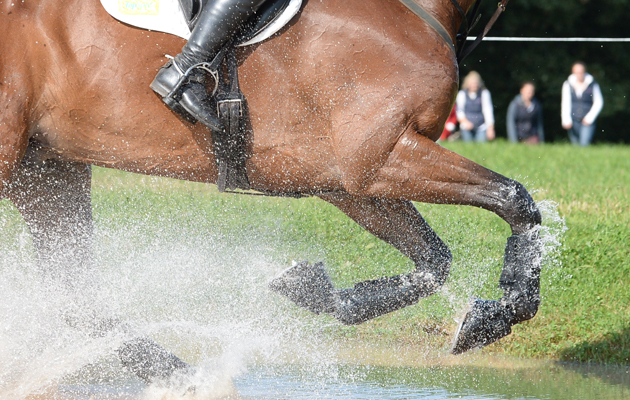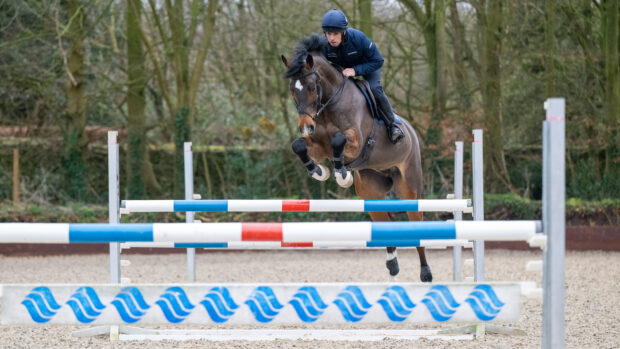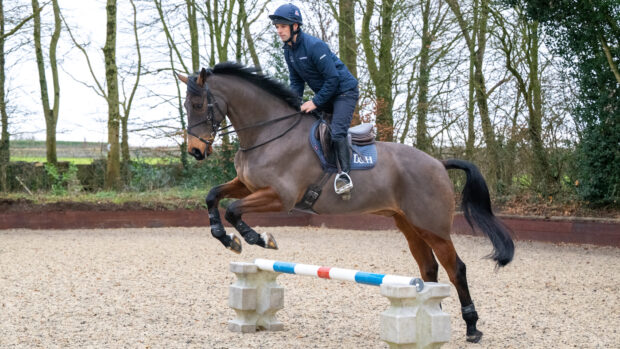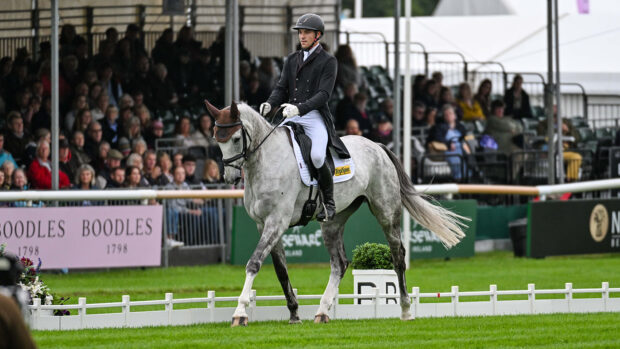Even at lower levels of eventing, getting your timing wrong can scupper your hopes of success. We asked the experts for their tips on achieving the optimum time going cross-country
1. Know your rhythm
“Rhythm is the key to riding inside the time,” says Francis Whittington. “Choose a rhythm, stick to it and practise consistently. Be aware of your rhythm on the course, check your time-faults and practise again next time out.” Francis explains that the top riders work on “rhythm, balance and control”. “Repetition at events allows them to engage their inner clock and this helps them to ride to the time,” he says.
2. Look over your shoulder
Have you ever walked a cross-country course backwards? The 1964 Olympian James Templar maintained it was the way to find the quickest route. His Pony Club pupil, six-times Badminton winner Lucinda Green, passes this on to her own students. “I advise riders to look behind them constantly while walking the course, to detect the most direct route,” she says. “It’s fascinating how you can’t always see this just by looking forwards.”
3. Practise changing gear at home
Harry Meade says that his experience of pace was garnered in the hunting field. “I have hunted all my life and learnt to ride as sympathetically as possible, because a horse that is ridden in a rhythm, in balance and on efficient lines stays fresh and can cover more ground during a day,” he says. “In fittening work at home, I use the full range of speeds and incorporate many changes of gear to make the horse more responsive. At four-star, you spend a lot of time travelling faster than 600 metres per minute, but also have to travel at walking pace — for something like Burghley’s Leaf Pit.”
4. Find the right note
Amateur rider Vicky Franklin taught herself rhythm using measured distances. “I used Ordnance Survey maps to measure a distance and time myself,” she says. “I learnt how fast a hand canter was and sang a song to keep the tempo, then a full canter — with a song to match — and finally a steady gallop. All 3 songs kept me and my horse within a good rhythm throughout, leaving me to concentrate on riding the fences.”
5. Start as you hope to continue
British Eventing trainer Sally Billing, who has ridden up to three-star level, likes to jump off strongly, so that if complications ensue towards the end of the course, she has seconds in hand.
6. Don’t hang around on landing
Sally Billing also rarely encourages inexperienced competitors to ride for the time, but still advises them not to hang around on landing. “Many riders jump the fence and waste four strides thinking about how that went,” she says. “It’s better to gallop away positively than head into a fence too fast.”
7. Don’t dwell on every fence
“Unless you have a very hot horse, start kicking in the air, urging the horse to land running,” says Lucinda Green. “Land, go, pat — rather than land, pat, go.”
8. Save those seconds
“If you can save half a second after every fence on a 30-fence course, that can make a big difference,” Harry Meade points out. He believes too much time is wasted setting horses up for single fences. “You need to be able to set a horse up at a gallop,” he says. “You should not have to slow down to prepare for a non- combination fence, such as an upright table.”
Continued below…
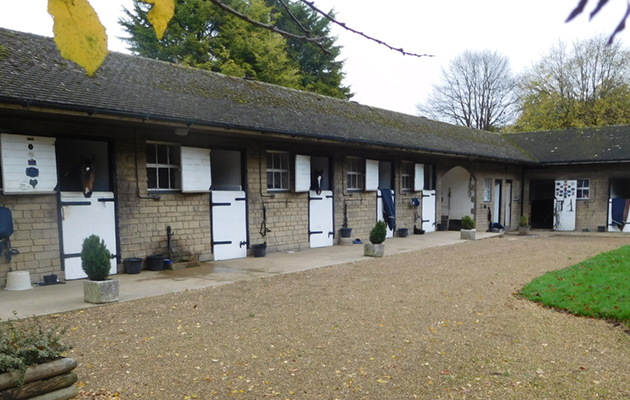
Relocate to Laura Collett’s former base — complete with 20 stables and an indoor arena
Check out this horsey home in Newbury, Berkshire,

H&H question of the week: my horse hates ditches — what should I do?
Four-star event rider Coral Keen provides one H&H
9. Make use of your turns
Four-star rider Lauren Shannon advises using “turns to set you up, rather than wasting time fighting on a straight stretch”. “The most common reasons for not making the time are setting up too early, killing the canter before you get to the fence and then not moving off afterwards,” she says.
10. Spot the rhythm
Finally, an insider’s-tip from Frances Whittington. “Every course-designer has a rhythm, it’s about finding that rhythm each time.”
For all the latest news and reports, don’t miss Horse & Hound, out every Thursday
